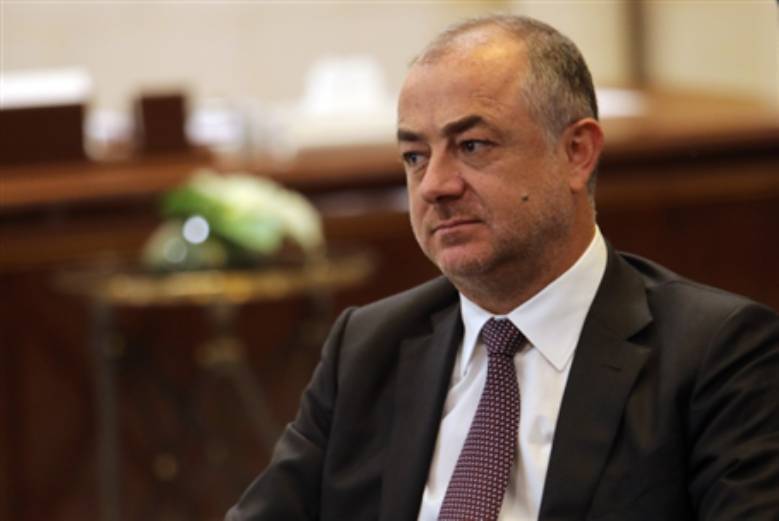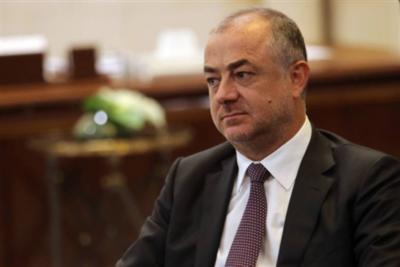Deputy Speaker of the Lebanese Parliament Elias Boussaab, who meets periodically with the U.S. envoy, stated that "Hoekstein discussed during his recent visit to Beirut the points he had previously raised, and implementation will begin once the situation in Gaza becomes clearer, noting that he visited Lebanon expecting a ceasefire in Gaza before Ramadan." In an interview with the electronic newspaper "Al-Anbaa," Boussaab reminded that "Amos Hoekstein had informed Speaker Nabih Berri during his prior visit about a plan to establish stability in the south, and Lebanon has officially announced its position on this issue." He indicated that "the goals set by Lebanon were reiterated by Hoekstein, which are calm, safety, and stability along the borders, and the return of the people of the south to their villages. At the same time, there is the Israeli concern on the opposite side about bringing settlers back to their settlements."
Boussaab pointed out that "Hoekstein believes that diplomatic efforts, alongside agreements, are the only way to secure this stability, while war does not achieve any of the aforementioned goals." Regarding the non-linkage of the ceasefire in Gaza to security stability in Lebanon, Boussaab clarified that "this answer came outside the written statement; he said that stopping the war in Gaza does not automatically mean it will stop in Lebanon without implementing a political-diplomatic solution that allows for understanding on how to achieve stability, which is the reason Hoekstein came. He did not say that the war would continue in Lebanon when it stops in Gaza. During my meeting with him, I confirmed that this reflects his thoughts and spirit."
Boussaab also mentioned that "Hoekstein had previously established plans and ideas, and he is now reintroducing them to seek executive mechanisms for their implementation so that discussions can begin in Lebanon after achieving a ceasefire in Gaza, thereby preparing Lebanon in advance." He emphasizes that "the Lebanese parties that met with Hoekstein left him with a single impression: Lebanon does not want to enter any war. If the Israelis consider launching any preemptive war or choose to engage in a war out of fear that the scene in Gaza might repeat along their northern borders, they would be mistaken, as war will not bring them stability nor assist in the return of the settlers."
Regarding the mentioned delivery of a proposal from Hoekstein to President Berri to present to "Hezbollah," Boussaab replied, "These ideas were previously raised, and President Berri is managing all these negotiations, and I am aware of part of it. President Berri is working on an exit through communication with Hezbollah in Lebanon and directly with the U.S. mediator, to come up with a formula that allows agreement on an understanding that secures stability in Lebanon after the war in Gaza ceases, aiming for a long-term rather than a temporary agreement. As for Hezbollah, it was clear that it is open to dialogue and discussion upon achieving a ceasefire or calm in Gaza."
On the presidential file, Boussaab clarified that "no party has directly stated that the presidential file is linked to the south. However, according to his analysis, 'stability in the south requires political stability that protects it, as it is impossible to implement security arrangements that would be sufficient even if 20,000 troops were deployed in border areas without a political decision ensuring stability; therefore, the army's spread would yield no results in this case, regardless of their number. Conversely, the army could number 10,000, and calm could prevail in the south under a political agreement.' Hence the importance of Hoekstein's visit, expanding the range of meetings he held with various parties, including former leader of the Progressive Socialist Party, Walid Jumblatt."
Boussaab ruled out "Hoekstein delving into presidential details during his visit; however, the expansion of his meetings should be viewed positively, especially since it aids in reaching future political solutions. Openness among the various parties in Lebanon is the solution, and when that happens, it will prove that the meetings held were no longer just about security in the south but also had a political dimension, addressing political files alongside the security stability in the south."
In response to a question, Boussaab confirmed that "the visit was not a total failure but rather a continuation of his previous efforts. Those who know Hoekstein's way of working understand that he continues to negotiate and listens to different perspectives to determine common grounds that can be built upon to satisfy both parties so that he can then present his proposal." He added that "the U.S. envoy has a successful track record in negotiating in Lebanon," expecting that "he will continue his efforts until reaching a result and establishing the stability that the Lebanese seek primarily."




